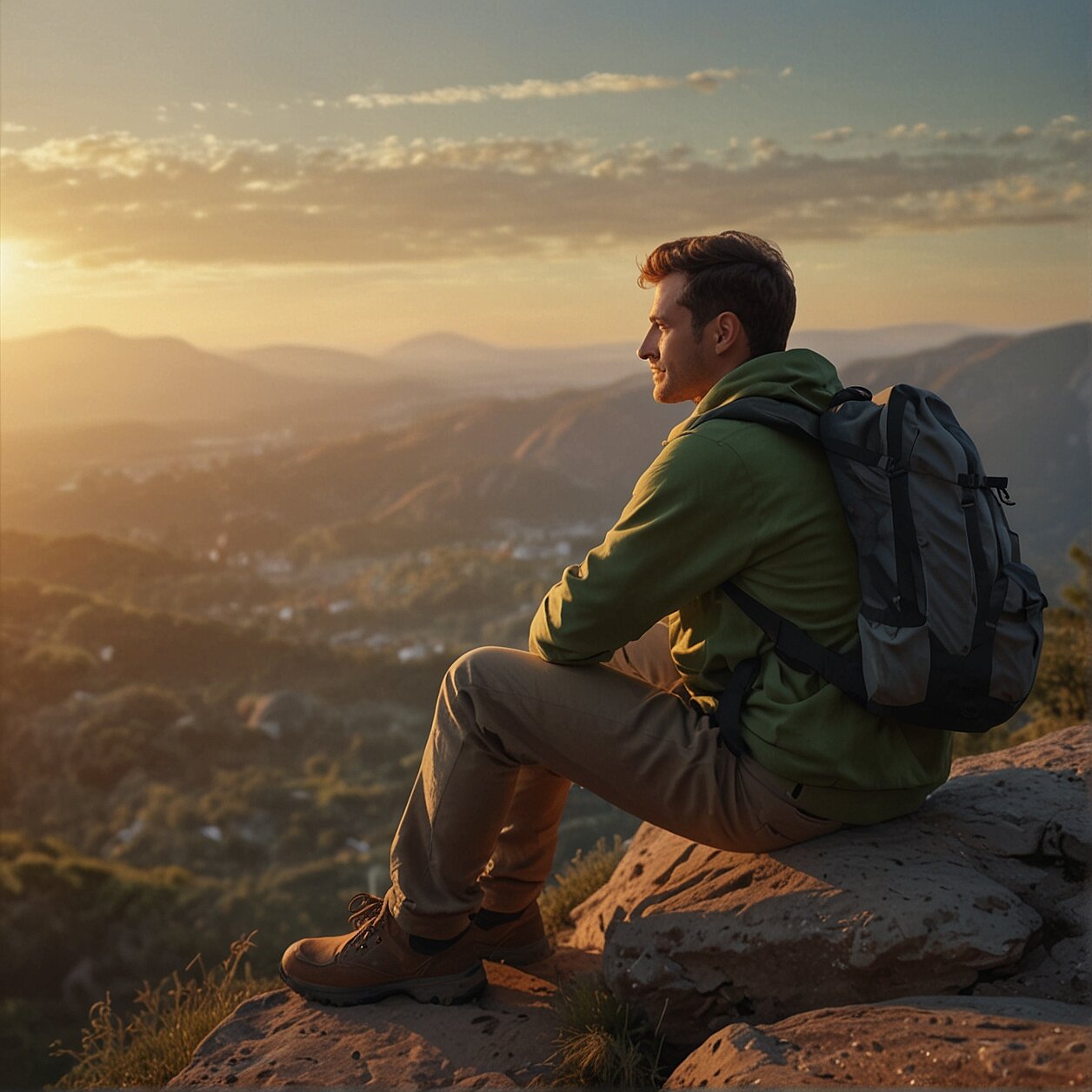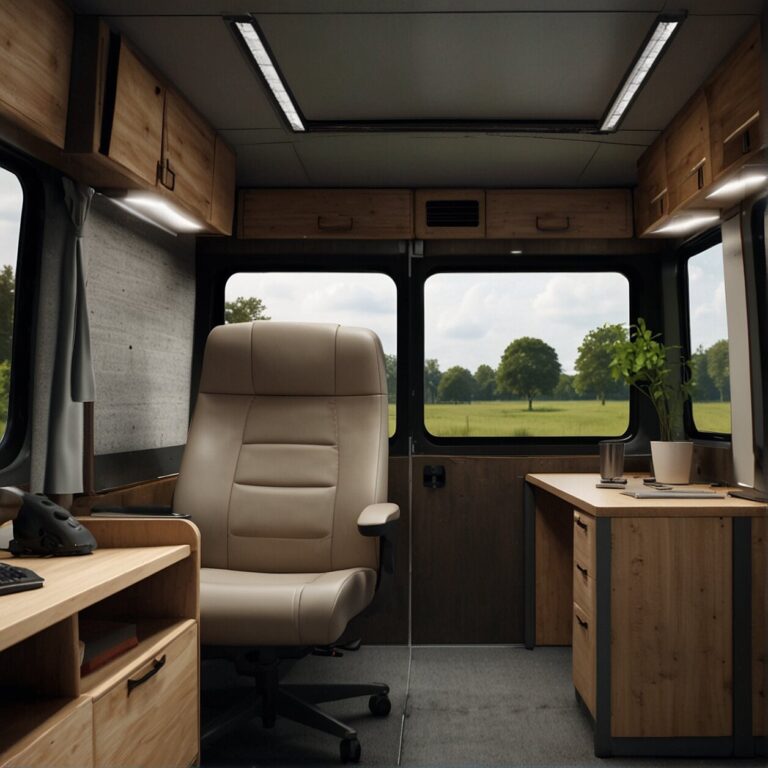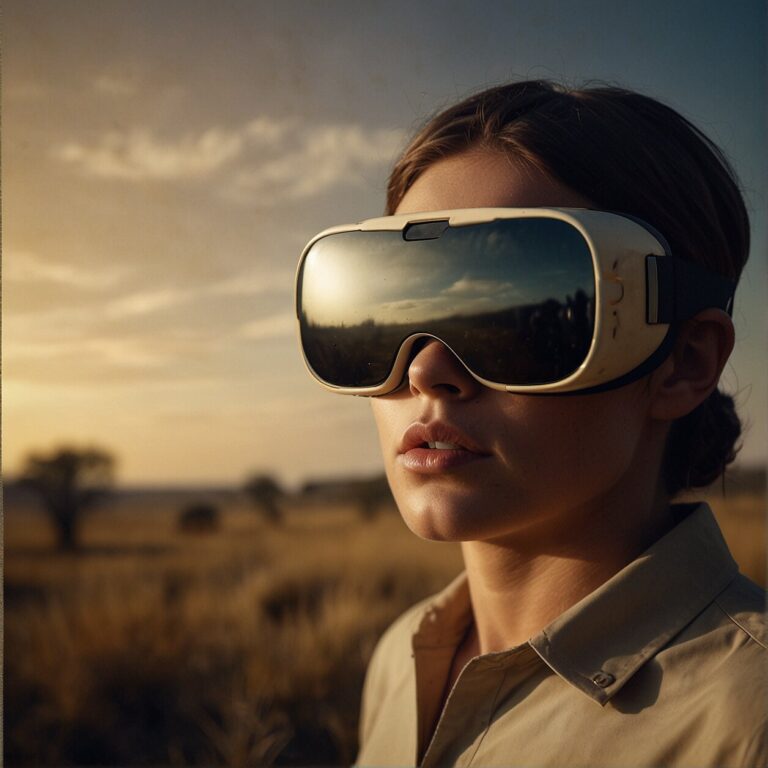Healthcare on the Go: Staying Healthy during Solo Travel
Traveling alone can be an exhilarating experience. The thrill of navigating an unfamiliar place, tasting different cuisines, and submerging in unique cultures can provide a sense of adventure and freedom unlike any other. However, maintaining your physical and mental well-being in an unfamiliar environment can be a challenging endeavor. This article serves as a guide for those who appreciate the independence of solo travel without compromising their health and wellness. From dietary tips, exercise routines, to managing stress on the road, we will explore numerous strategies to ensure that you return from your journey not only enriched, but also revitalized.
“Traveling solo gives you the chance to reboot, recharge, and emerge stronger with a newfound perspective and increased resilience. But, ensuring your health and wellness throughout the journey is key to reaping the full benefits of a solo adventure.”
As we progress, you’ll discover the impact of travel on your health, the importance of staying active while on the move, selecting the right nutrition, getting adequate rest, and implementing mindfulness and self-care strategies during your journey. You’ll also find answers to some frequently asked questions around stress management, safety, relaxation techniques, and the overall health benefits of solo travel.
- Understanding the Impact of Travel on Your Health
- Benefits of Staying Active on Your Journey
- Choosing the Right Nutrition: What to Eat When Traveling Alone
- Getting Adequate Sleep: Rest and Recovery on the Road
- Practicing Mindfulness and Self-Care on Solo Travel
- FAQs
Fasten your seat belts and prepare for a journey towards maintaining a healthy and enriching solo travel experience.
Understanding the Impact of Travel on Your Health
Travel certainly offers thrilling adventures, stimulating experiences, and the opportunity to explore unknown regions. However, it’s crucial to recognize how traveling, particularly solo travel, can affect your health. When we talk about health here, it encompasses both physical and mental aspects.
Physically, the rigors of travel can take a toll on your body. Long hours spent sitting in planes, trains, or automobiles can lead to stiffness, discomfort, and a general feeling of lethargy. Plus, there’s the impact of jet lag, which can knock off your body’s internal clock. Also, it’s easy for your diet to go haywire when you’re on the road, faced with unfamiliar cuisines, irregular mealtimes, and frequently, the temptation of fast food.
In terms of mental well-being, solo travel often means adapting to a new environment without the support of familiar faces. This can result in feelings of loneliness, anxiety, or even homesickness. Additionally, cultural differences and language barriers can lead to stress and frustration. However, these challenges also present opportunities for personal growth and resilience building.
But worry not! Arming yourself with knowledge and a plan can aid in countering these potential obstacles. Subsequent sections in this article will guide you through maintaining your physical and mental health while traveling alone, focusing on diet, exercise, and stress management. Hang in there, traveler. Your journey to a healthy travel experience begins here.

Benefits of Staying Active on Your Journey
Traveling alone gives you ample opportunities to stay fit. It’s all about prioritization. Fitness doesn’t have to mean hitting a hotel gym either. Let’s dive in and see how you can keep your body moving.
Whether you’re exploring new neighborhoods on foot, trying out local dance classes, or even just carrying your own luggage, these all contribute to your daily physical activity. A simple walk around your new environment not only keeps you active but also helps in observing local culture and discovering hidden gems. Whenever possible, opt for stairs instead of elevators, or choose to walk or bike instead of using public transportation.
Furthermore, incorporating light morning workouts into your travel schedule can also be beneficial. These can range from simple stretching exercises, deep breathing, to yoga routines. Working out in the morning will not only help maintain your fitness levels, but it also releases endorphins (the feel-good hormones) that will keep your mood upbeat throughout the day.
Trying out local sports or outdoor activities are also fun ways to stay active. Kayaking, hiking, or beach volleyball – they all contribute to both your physical fitness and your overall travel experience. It’s a great deal – you get to experience new and exciting activities, meet locals and other travelers, while staying fit at the same time!
Remember, maintaining an active lifestyle while traveling plays a key role in enhancing your overall well-being. By keeping active, you not only maintain your physical health but you also promote better mental health. So, embrace the opportunity to stay fit on your journey.
Choosing the Right Nutrition: What to Eat When Traveling Alone
The key to maintaining energy levels and feeling good throughout your solo trip solely depends on what you feed your body. When you’re on your own, it’s easy to fall into the trap of unhealthy fast food or quick convenience food options, but it’s more important than ever to make mindful dietary choices.
First off, try to eat a balanced diet as much as possible. This includes lots of fruits and vegetables, lean proteins, and whole grains. Eating well-balanced meals can provide you with the energy, vitamins, and nutrients you need to stay alert and active.
Tip: Pack snacks! Nuts, granola bars, and dried fruits are excellent choices. These not only save you from hunger pangs but also help in maintaining your blood sugar level, preventing energy slumps throughout the day.
Stay hydrated, too. Traveling, especially to warmer climates or high-altitude areas, can dehydrate the body much faster than you might realize. Drinking plenty of water is crucial, and can also help combat the ill effects of jet lag.
Consider local, fresh food options. One of the unique advantages of solo travel is the opportunity to deeply immerse yourself in the local culture, and food is an integral part of that experience. Explore local markets and try native produce – this not only gives you a taste of the culture but can also be a healthier, more nutritious option.
Lastly, moderation is key. It’s alright to indulge in a savory snack or local dessert, but maintain a balance and don’t forget the healthier options. Rewarding yourself with a treat can also serve as a great mood-booster, so don’t be too hard on yourself. Just remember to eat mindfully.
Getting Adequate Sleep: Rest and Recovery on the Road
Getting a good night’s sleep on the road can sometimes feel elusive, but it’s more attainable than you might think. Sleep, rest, and recovery are vital components of maintaining your health while traveling. This is especially true when you’re traveling alone, where you solely depend on your alertness and judgment in a new environment.
One effective way to assure quality sleep is through creating a sleep-friendly environment. Block out noises with earplugs or ambient sound apps on your smartphone. Invest in an eye mask to create darkness even in the brightest environments. The little steps you take can make a huge difference in the quality of your sleep.
Don’t underestimate the power of adhering to a routine, either. Try to keep sleeping and waking times consistent, even if you’ve moved across time zones. This encourages your body’s internal clock, also known as your circadian rhythm, to remain consistent. If you’ve moved through many time zones, consider taking melatonin supplements to aid your body’s adjustment.
Lastly, pay attention to your pre-sleep routine. Avoid stimulants like caffeine and alcohol close to bedtime. Engage in relaxing activities such as reading a book or meditating to wind down for the day. When solo traveling, it’s easy to fall into the habit of scrolling through your phone or watching TV until late into the night. However, the blue light emitted from these devices can disrupt your sleep. Try using blue light blocking glasses or turning off your electronics an hour before you plan on sleeping.
Remember, maintaining your physical and mental well-being whilst traveling alone revolves significantly around the quality of your sleep. Make sleep a priority, and your body and mind will thank you.

Practicing Mindfulness and Self-Care on Solo Travel
Traveling alone can be a beautiful and rewarding experience, but it can also come with its fair share of stress. That’s where the practice of mindfulness and self-care truly comes into play. This isn’t just about pampering yourself; it’s about prioritizing your well-being and taking steps to maintain your physical and mental stability.
Mindfulness means being fully present in each moment and consciously aware of your surroundings and how you’re feeling. Try noticing the small details around you – the smell of the ocean, the sound of the wind, or the feeling of the sun on your skin. Treating yourself to an occasional luxury like a spa day or a special meal can also enhance your experience and boost your mood.
Furthermore, mindfulness involves recognizing any negative emotions such as loneliness or anxiety and accepting these emotions without judgment. Remember, it’s okay to miss home or to feel overwhelmed, it’s part of the experience. Instead of trying to suppress these feelings, allow yourself to feel them and then let them go. Deep breathing exercises can also be helpful in such cases.
When it comes to self-care, listen to your body. Try not to push yourself to see everything and instead focus on seeing the things you truly enjoy. Stay hydrated, maintain a balanced diet, and don’t skip meals. Get enough sleep and take rest days when needed. Try starting a travel journal where you can jot down your thoughts and experiences; it’s a mindfulness practice that also allows time for self-reflection and mental relaxation.
Through mindfulness and self-care, solo travel can become not only an opportunity to see new places but also a journey of self-discovery and personal growth. Embrace this opportunity to learn more about yourself and the world around you. Remember, you matter, and your well-being is important. Take care of yourself, and you’ll come back from your travel adventure stronger, happier, and more relaxed.
FAQ’S
Traveling solo can be one of life’s most enriching experiences. It offers a unique opportunity for self-reflection and personal growth, pushing you out of your comfort zone and encouraging a deep dive into the world’s beautiful and diverse cultures. However, maintaining your physical and mental well-being on the road requires a mindful, intentional approach. Whether you’re venturing into the wild or strolling through a bustling city, this guide will equip you with practical tips to keep your mind sharp, your body energized, and your soul revitalized. Here, we’ll explore how the right diet, exercise, adequate rest, and stress management can make your solo journey a memorable, healthy adventure.
What are the best ways to manage stress when traveling solo?
Stress is an all-too-common sidekick when traveling alone, but you don’t have to let it spoil your journey. The first strategy is simple preparation before your trip. Map out your itinerary, familiarize yourself with the local area, and plan for potential situations that could cause anxiety. The knowledge that you’re equipped to tackle any challenges can significantly reduce stress levels.
Furthermore, it’s crucial to maintain a daily routine. Consistency can provide a comforting sense of normalcy in unfamiliar environments. So, try to establish regular times for meals, exercise, and sleep – even if it’s not exactly the same as your routine back home.
Mindfulness activities can also act as a powerful antidote to stress. Whether it’s practicing deep breathing, meditation, or simply taking a few moments to admire your surroundings – these acts of mindfulness can help you stay grounded and focused.
Lastly, remember to stay connected with loved ones. Technology has made it easier than ever to reach out to friends and family, no matter where you are in the world. Even a quick phone call can instantly lift your spirits and mitigate feelings of stress or loneliness.
By embracing these strategies, you can effectively manage stress during your solo travels and ensure a more fulfilling and enjoyable journey.
What are some safety tips for solo travelers?
Differentiating between safety and fear is key even before setting foot outside your door. Remaining vigilant while also completely immersing yourself in the new experience is a delicate balance, one that becomes innate with time and practice. Armed with effective planning, common sense, and these few tips, you can confidently embark on your solo adventure.
Firstly, let’s begin with your belongings. Always have copies of all your important documents such as passports, driver’s licenses, health insurance cards, etc. It’s essential to keep these copies separate from the original ones, and in different places. You should also consider leaving a copy with someone trust-worthy back home.
Moreover, familiarize yourself with local customs and rules of the areas you visit. What’s considered a norm in one place might not be in another. Understanding these differences can prevent unnecessary misunderstandings and boost your confidence when interacting with locals.
An essential part of staying safe while traveling alone is to stay connected. Regularly update someone about your whereabouts and plans. This could be a close friend, a family member, or a designated contact at home. This doesn’t mean constant checking-in, but rather letting them know of any major changes in your itinerary or if you’ll be off the grid for a while.
Lastly, trust your instincts. If something or someone doesn’t feel right, it’s better to err on the side of caution rather than disregard your intuition. Remember, your personal safety always comes first. Happy traveling!
How can I practice mindfulness and relaxation techniques during travel?
Keeping your mind calm and focused can often feel challenging, particularly when you’re navigating a new city or culture on your own. Mindfulness and relaxation techniques can be incredibly helpful, providing clarity and peace when you need it most.
Begin with deep breathing exercises. This can be done just about anywhere, and can provide immediate relief from feelings of anxiety or stress. Inhale deeply, counting to four, hold your breath for a similar count, and exhale for another count of four. This simple action can help slow your heart rate and decrease tension.
Meditation is another great tool. If you’re new to meditation, using a mobile app like Headspace or Calm can guide you through relaxing exercises. Even spending just a few minutes each day in quiet contemplation can have profound effects on your mental state.
Likewise, taking time to appreciate your surroundings can also induce a sense of mindfulness. Pay attention to details you might normally overlook, such as the scent of the city after rain or the feeling of sun on your face. These moments of awareness grow into a cultivated sense of appreciation for your solo journey.
Progressive Muscle Relaxation (PMR) is another effective technique for managing stress during solo travel. PMR involves tensing and then relaxing each muscle group in your body, starting from your toes and working your way up to your head. This conscious release of tension in your body has a corresponding effect on the mind, helping you feel more grounded and relaxed.
Lastly, don’t forget that maintaining a consistent sleep schedule, eating nutritious food, and staying physically active are also vital for maintaining mental clarity and reducing stress. Balance across all aspects of your health and well-being is key when traveling alone.
What are the health benefits of solo travel?
Solo travel can provide significant health benefits. It allows the opportunity for self-discovery and growth, contributing to improved mental well-being. Exploring new cultures, interacting with locals, and overcoming challenges boosts your confidence and resilience, strengthening your emotional health.
In terms of physical wellness, you could have a more flexible schedule that caters to regular exercise, whether by walking around, hiking, or even trying out local sports, leading to enhanced physical fitness. Often, solo travelers tend to improve their dietary habits too by trying fresh local cuisines.
To boot, traveling alone provides a great chance for relaxation and escape from daily stressors, leading to reduced anxiety and increased overall happiness. All these factors combined affirm that solo travel is not just about seeing new places, but it’s also a journey towards a healthier you.
How can I maintain my mental health while dealing with culture shock or homesickness?
Traveling solo can be a rewarding, but at times challenging experience. Homesickness and culture shock can easily creep in, potentially affecting your mental health. So, how can you maintain your mental health in these circumstances?Let’s explore.
Firstly, remind yourself that it’s completely normal to feel out of your comfort zone when you’re in a different cultural environment or far from the familiarity of home. This recognition can be the first step to putting those feelings in perspective and subsequently managing them effectively.
Consider maintaining a routine as much as possible. Dividing your day into familiar patterns can help provide a sense of normalcy and lessen the impact of culture shock. Wake up, exercise, eat at roughly the same time each day or maintain the same night-time routine you have back home.
Another useful method is to engage in communication with loved ones back home. Although you’re traveling alone, you don’t need to feel isolated. With today’s technology, it’s easy to stay connected through video calls, text messages, or social media.
It’s also beneficial to build connections in your new environment. Make an effort to mingle with locals or other travelers. Participating in local customs, tasting local cuisines, understanding local history, or even learning a few phrases in the local language can help you feel connected and reduce feelings of homesickness or culture shock.
Lastly, practicing mindfulness and self-care is an effective way to maintain mental health. Be aware of your emotions, accept them, and allow yourself to feel. Allow time to relax, reflect, engage in activities you enjoy, or simply savor a moment of solitude. Remember, self-care isn’t selfish – it’s necessary, particularly during travel.
Dealing with homesickness and culture shock is part and parcel of the travel journey. With these strategies, you can not only manage, but flourish and make the most of your solo travel experience.







